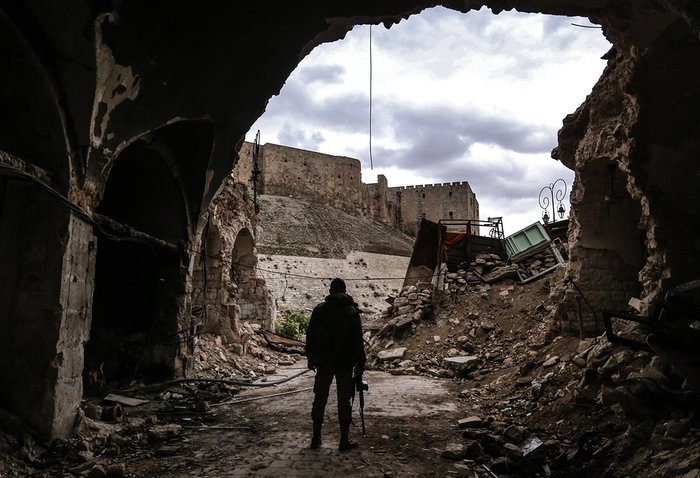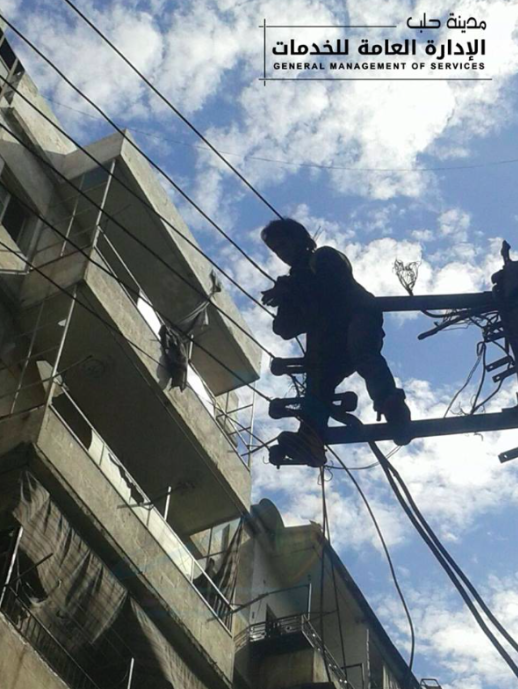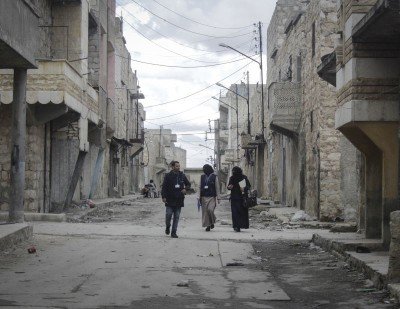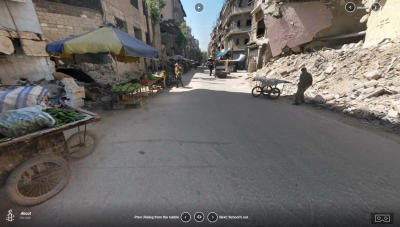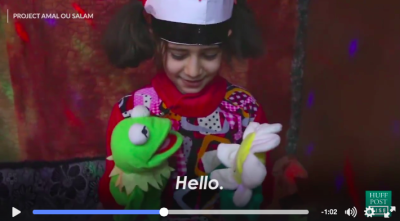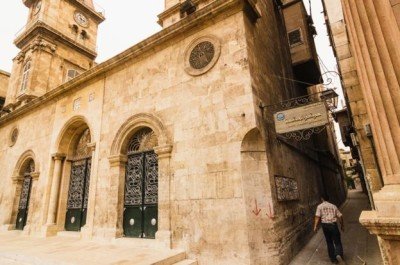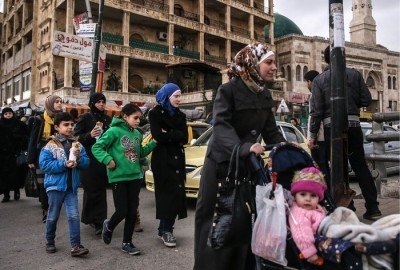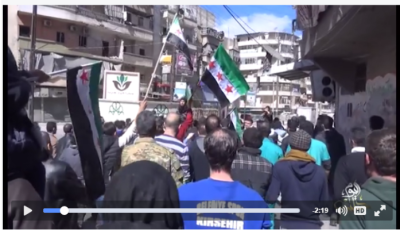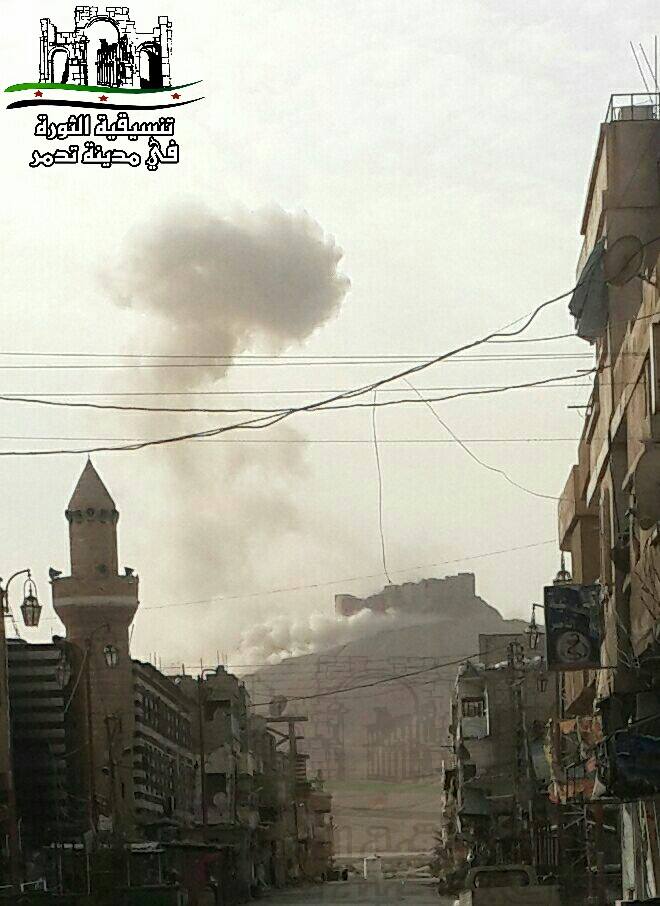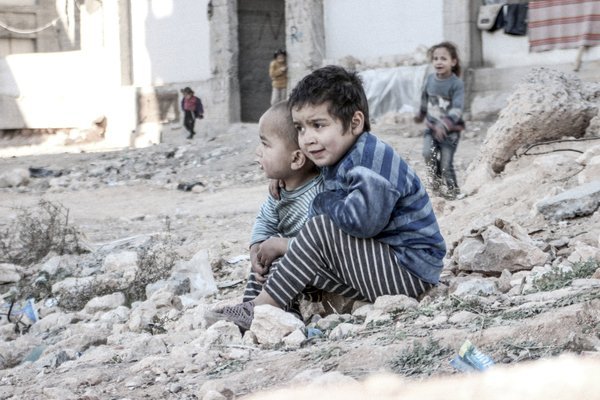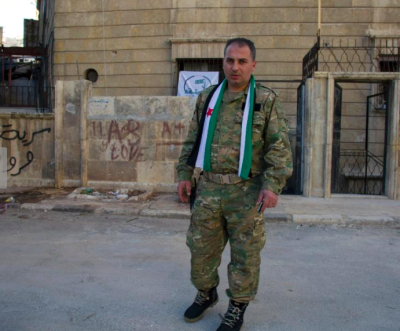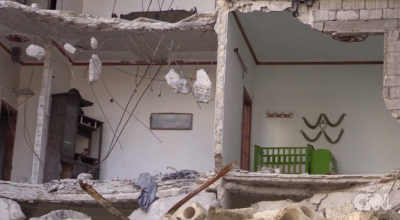LIFE IN THE CITY
With electricity returning to many main electrical plants, residents reported that up to 140 district-level electricity posts were looted by pro-government militias in government-controlled western Aleppo. Pro-government Zahraa News Network called on residents in western Aleppo not to pay newly announced electricity connection fees because the provincial director of electricity said his directorate would pay these costs.
Municipal water returned to several districts in western Aleppo, including Seif ad-Dauleh and New Aleppo. Water, which had been cut off for several months has still not reached Izaa, Sirian and Ashrafiyeh.
“Meet the Doctors Keeping Aleppo Alive,” Syria Deeply.
Amnesty International launched “Fear of the Sky” with 360-degree photography, narration, sound recordings, videos, and 3-D graphics.
Halab News Network re-launched its Android app observatory of military flights and airstrikes. The app acts as an early warning system by notifying users in real-time when aircraft take off from military bases and which direction they are flying. This information from rebel fighters permits civilians to seek refuge in basements ahead of strikes.
Project Amal ou Salam spoke to the Huffington Post about its program for Syrian Kids Going Underground For School.
The BBC’s Museum of Lost Objects: The Armenian church in Deir al-Zour explored the importance of Aleppo for Syrian Armenians.
From the Guardian, Daily life in Syria’s largest city – in pictures.
WIDESPREAD PROTESTS
Last Friday, widespread protests continued across opposition-held areas of the country. Thousands marched the streets in the as-Sukkari District of Aleppo calling for the peaceful ouster of the Assad regime.
…Syrians have endured a state policy of mass murder on a scale that arguably has no precedent in recent times…But nothing has diminished the hunger, inside Syria and among its refugee diaspora, for an end to autocracy. The bravery of protesters must be acknowledged. And their message heard. The Guardian view on Syria: the people return to the streets against Assad.
The festive mood in Maarret an-Numan, a Free Syrian Army (FSA) and an-Nusra joint controlled town 80km southwest of Aleppo city, was disrupted when members of an-Nusra Front ambushed an FSA-sanctioned anti-regime demonstration by secular nationalists. The situation escalated when an-Nusra later detained members of the FSA’s 13th Division and killed several.
Later in the day, people stormed the building where members of the 13th Division were detained, freeing four.
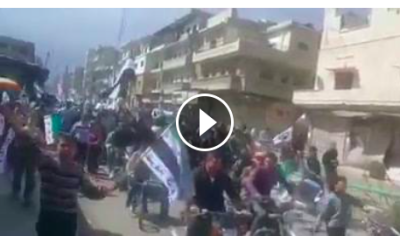 Residents protested against an-Nusra’s acts and called for the group to leave town. On March 14, an-Nusra ordered the evacuation of its personnel from its Marrret an-Numan headquarters after one of its checkpoints was attacked.
Residents protested against an-Nusra’s acts and called for the group to leave town. On March 14, an-Nusra ordered the evacuation of its personnel from its Marrret an-Numan headquarters after one of its checkpoints was attacked.
Major rebel groups in Aleppo issued a joint statement condemning an-Nusra’s attacks and calling for reconciliation.
THE STATE OF THE CONFLICT
Russian and regime air strikes killed civilians in ISIS-held Palmyra (Tadmur) town. The historical site was not spared. The 13th-Century Fakhr ad-Deen al-Maany II Castle was also bombed.
Halab News Network reported that regime or Russian air strikes killed ten civilians in As-Salheen district. This is the most deaths caused by an attack in Aleppo city since the ceasefire started. Halab News also reported sporadic gunfire and clashes between the rebels and the regime around Aleppo Citadel.
UNICEF published a new report, “No Place for Children” calling for an end to violations of children’s rights; lifting sieges and improving humanitarian access inside Syria; securing US$ 1.4 billion in 2016 to provide children with learning opportunities; restoring children’s dignity and strengthening their psychological wellbeing; and turning funding pledges into commitments.
Aleppo Photographer Karam al-Masri wrote about ‘Four lives derailed by Syria’s brutal war.”
CNN went undercover to work with Syria-based filmmaker Bilal Abdul Kareem in rebel-held Syria on The truth about Syria: Undercover behind rebel lines.
CNN also published ‘What Syrians want you to know‘ 55 stories of lost homes, lost lives – and hope after five years of war. The report included the stories of several from Aleppo, including lawyer Muheeildin, journalist Emad Najm Husso, students Hala, Radwan and Shaha Othman, tailor Ahmed Sheiko, and young children Gulbahar Daoud and Omar.
 The Aleppo Project
The Aleppo Project